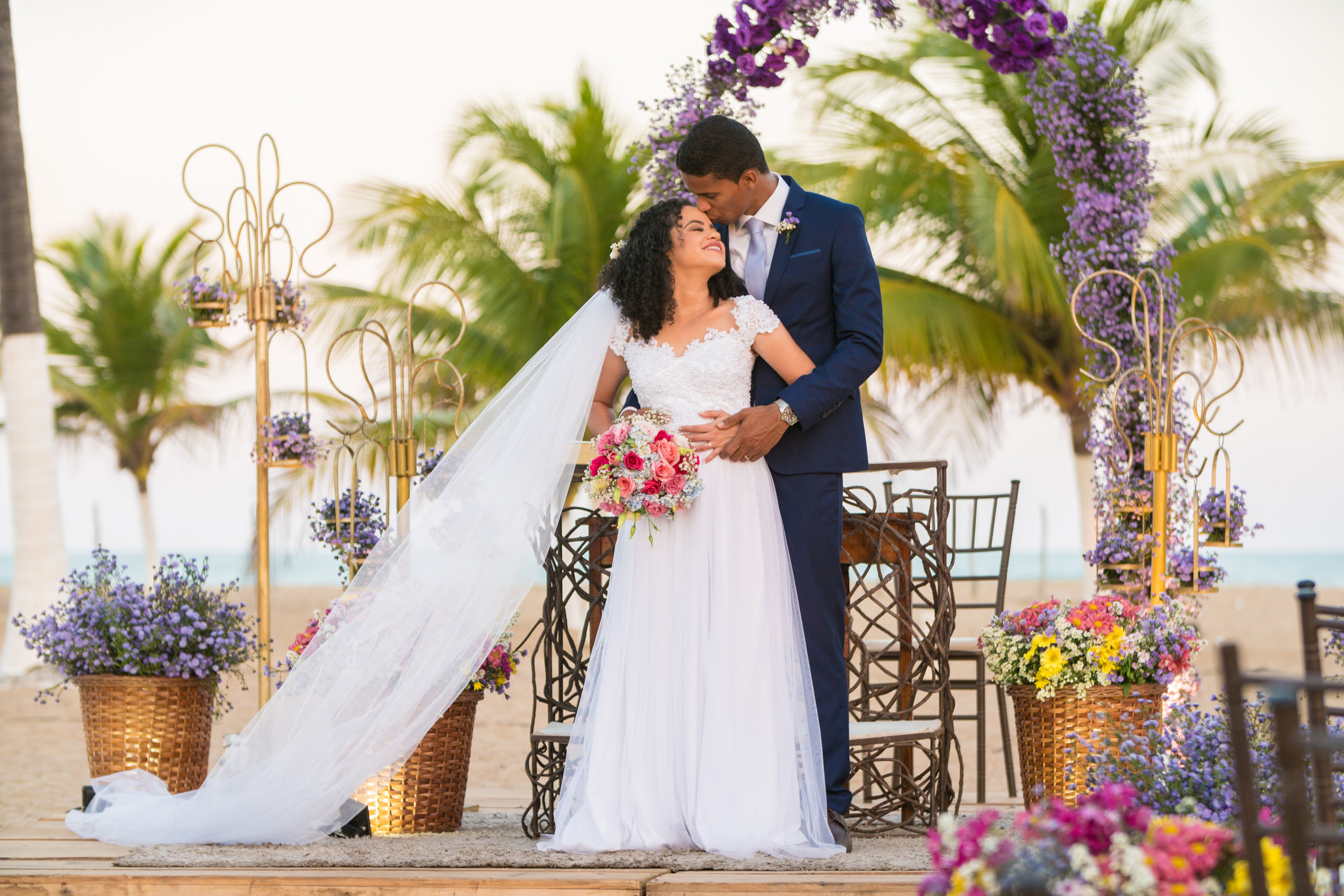" When one person is completely dependent on the other , especially at a comparatively young age ( financially and emotionally ) . It ’s very unhealthy , and a huge crimson flagstone . It always end in a painful and mussy breakup . Generally , we sample to get them to retrieve a friend , join a community , get a job , or volunteer — something to cater them with ego - deserving and personal fulfillment outside of their spouse . "
Reddit useru/Gnerdyasked the couples therapists/marriage counselors of the Reddit community: “Couples therapists, without breaking confidentiality, what are some relationships that instantly set offred flags?”
These professionals didn’t hold anything back. They revealed red flags they’ve noticed early on during sessions — and what they saw was unfortunate but incredibly eye-opening.
So, here are some small but mighty warning signs that couples won’t make it in the long run, straight from marriage counselors/couples therapists:
Note : Some submissions include subject of verbal and strong-arm ill-treatment . Please proceed with caution .
take down : Some meekness were pull by this Redditthreadby useru / Zorra _ .
1.“If either partner rolls their eyes when the other is talking or sharing. It’s quick to notice and shows a lack of respect for the other partner’s feelings. It’s one of the easiest and most reliable ways to see that a relationship won’t last. Of course, it is a sign of an unhealthy, underlying dynamic — eye-rolling in itself is not dangerous.”
— u / BosskingNorway
2.“I mainly work with individuals, but the reddest of flags for me is when clients try to get me to take sides. I can understand why people may do that every now and then during more difficult discussions, but if it happens consistently, it’s a huge problem. There are plenty of reasons that people may do this, but the reality is that therapy is meant to foster cooperation between partners. Feeling like you need the therapist on your side indicates you’re approaching the relationship as a competition, not a cooperative interaction — nothing good comes from that.”
— u / bda - goat
3.“Keeping score. A partnership is a team — not a competition. Whether a person keeps score of everything they have done, or everything their partner has done, it is a death-knell for the relationship. This is one of the most common causes of resentment in a relationship, and you see it often when people use absolute terms to describe themselves or their partners (‘I always, ‘she never…'). Remembering that each person has their own needs, abilities, skills, and boundaries is essential to having a healthy relationship.”
4.“When a partner raises an objection to meeting with me individually. During the first session, I share that during assessment, I like to meet with them both together and once each individually. Occasionally, I’ll have partners who suddenly become very critical or suspicious about this. Asking why I’d do that, and is it ethical, and the classic: ‘I’ve never heard of a marriage counselor doing that before?!’ It goes beyond curiosity or simply inquiring about practice. There is an incredulous and almost panicked tone to it. And sure enough — Every. Single. Time. — they turn out to be some variation of controlling, manipulative, or abusive.”
— u / the_friar
5.“Therapist here who has served couples. The number one problem I see is an overactive threat response, which creates anger and rigidity. People don’t stop to turn down their defense mode, and lose sight of love because all of their energy is going towards being right or controlling the outcome. Of course, that control comes from a place of fear, but fear and vulnerability feels too dangerous, so it typically gets expressed as anger, frustration, or rigidity.”
— uracil / WhyAreYouUpsideDown
6.“Sexual boundaries — one litmus test: Does this person ascribe to the following definition of sexual consent? An ongoing, affirmative agreement between two or more people who are sober, cognitively and legally able to provide consent, and under no duress, explicit or implicit. That agreement is to engage in specific actions and is specific to that time and place.”
" If someone wants to do something different or additional , it requires obtaining consent for the modification or addition . Explicit duress is something like : ' Do this , or I ’ll kill you , ' whereas implicit duress is something like : ' If you do n’t do what I want , you ’ll get a bad grade / job revaluation / kicked out of your residence , etc .. ' "
— u / Sungillee33
7.“Getting married because they wanted a wedding, not because they wanted to be married.”
8.“Refusing to make a decision about whether you want to be in the relationship or not. I was doing sessions twice a week with one couple and we had gotten absolutely nowhere in six months. Every couple of sessions, we would come back around to the question of whether the wife wanted to be in the marriage or not, and she never had an answer. Therapy ended up stuck in the same limbo as their marriage…”
— u / lonewanderer015
9.“One thing I’ve learned in counseling couples (or one member seeking to repair the relationship) is that a significant part of their recovery needs another couple to provide perspective. There are only so many cards a therapist or psychiatrist can play, and it becomes limiting if the couple only uses you as a source of insight.”
— u / flushotdoc
10.“I’m a marriage counselor in Texas, and probably one of the biggest mistakes that couples make is forgetting that they’re on the same team (they fight to win instead of fight to resolve). Focus on hearing and understanding each other and engage in disagreements with an eye on coming together, and compromise will follow easily.”
— uranium / prninja8488
11.“Triangulation of the kids. Oftentimes, kids will show symptoms because they’re subconsciously trying to even out the imbalance between the parents, so I will see a family for therapy and immediately recognize that the issue is not so much with the kids but the way the parents communicate. Helping them structure themselves and get the power back into their hands by getting them on the same page often helps the kids adjust and cope. Imagine getting inconsistent consequences from your parents all the time — you don’t know when you’ll get in trouble and when you won’t.”
12.“I am a clinical mental health counselor and I do quite a bit of marital, family, and pre-marital counseling. If there’s one thing I’d say is the most important factor in the success or failure of a relationship, it is active listening. People nowadays simply do not know how to actively listen to one another. Social media and a false sense of hyperconnectivity make this issue much, much worse. Older couples with beautiful mutually-supportive marriages have naturally identified the importance of listening, and have negotiated the ways their partner needs to be heard. Relationships succeed or fail on this simple premise — be still, and listen to your partner.”
— u/6ravo2ulu
13.“Not expressing gratitude towards your partner on a regular basis. Experiences and expressions of gratitude can have a really positive effect on psychological well-being as well as relational strength.”
— u / maxpowerphd
14.“When one person is entirely dependent on the other, especially at a relatively young age — I mean financially and emotionally. These are typically young women (sometimes young men as well) who do not work, do not have children, stay home all day, and have no friends or hobbies outside of hanging out with their spouse. It’s very unhealthy, and a huge red flag. It always ends in a painful and messy breakup. Generally, we try to get them to find a friend, join a community, get a job, or volunteer — something to provide them with self-worth and personal fulfillment outside of their spouse.”
15.“As a clinical psychologist, I focused mainly on behavioral medicine and cognitive assessment but did my fair share of couples work. Refusal or inability to compromise is a ginormous red flag — one that, I believe, is empirically validated. Compromise is a significant predictor of satisfaction in relationships, and it plays an important role in the long-term success of marriages and relationships in general.”
— u / captain_ohagen
16.“Blaming their partner for all issues in the relationship and not taking ownership of their own role in dysfunction/issues.”
17.And: “If someone discourages you from spending time with friends, family, or other loved ones, or if someone rewards you for not seeing or talking to loved ones, that’s a red flag. Isolation is a common tactic of abusive individuals. More generally, be aware of anyone who tries to control where you go, who you see, or what you do. A relationship that is built on trust and mutual respect won’t include restricting one another.”
Note : Some responses have been edited for distance and/or clearness .
If you or someone you know is in immediate danger as a result of domestic violence , call 911 . For anonymous , confidential help , you may call the 24/7National Domestic Violence Hotlineat 1 - 800 - 799 - 7233 ( SAFE ) or shoot the breeze with an counsellor via the website .






